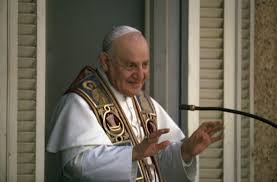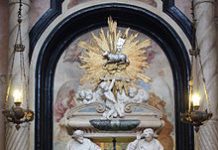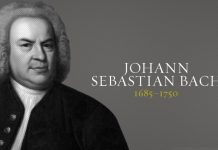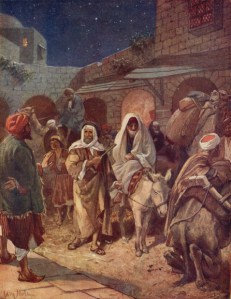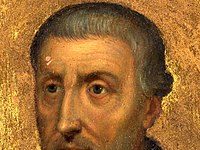October the 11th is the feast day of St John XXIII, chosen since it was the opening day of the Second Vatican Council, so connected with his pontificate. This great Pope keeps being remembered in Church’s history as the one who opened the Church’s windows to the fresh air of the Holy Spirit.
Who can forget his great words at the solemn opening of the Second Vatican Council delivered that fateful October 11th of 1962: The Church enlightened by the light of this Council – such is Our firm hope – will grow in spiritual riches and, by drawing strength from them for new energies, will look forward to the future. Indeed; with timely “updates” and with a prudent order of mutual collaboration, the Church will make men, families, and peoples really turn their spirit towards heavenly things. 12/13/2017 Speech on the occasion of the solemn opening of the Council. This is how the Council becomes the subject of a singular obligation of great gratitude to the Supreme Giver of all good, celebrating with a jubilant song the glory of Christ the Lord, glorious and immortal King of the centuries and peoples.
Due to his intimate relationship with the Holy Spirit who resided in his heart, St John XXIII became himself not simply the author of a book called Journal of Soul but he was a living icon of a soul who yearned and followed God’s Spirit absolutely.
From his very personal experience with Jesus, Angelo Roncallo came to realize that he was what he was thanks to Jesus’ inexhaustible mercy for him. He wrote: I live by the mercy of Jesus, to whom I owe everything and from whom I expect everything. His close friendship with Jesus made Pope John XXIII conclude that he was being cared for by the Eucharistic Jesus and His Mother Mary. O Jesus in the Blessed Sacrament, I would like to be filled with love for You; keep me closely united with You, may my heart be near to Yours. I want to be to You like the apostle John. O Mary of the Rosary, keep me recollected when I say these prayers of yours; bind me forever, with your rosary, to Jesus of the Blessed Sacrament. Blessed be Jesus, my love..
Jesus and Mary slowly slowly introduced Pope John XXIII to the extraordinary and reachable ideal of holiness. Thus, the saints became for Pope Roncalli persuasive teachers that holiness is, by God’s grace and one’s desire and tireless efforts, all the more possible. He said: From the saints I must take the substance, not the accidents of their virtues. I am not St. Aloysius, nor must I seek holiness in his particular way, but according to the requirements of my own nature, my own character and the different conditions of my life. I must not be the dry, bloodless reproduction of a model, however perfect. God desires us to follow the examples of the saints by absorbing the vital sap of their virtues and turning it into our own life-blood, adapting it to our own individual capacities and particular circumstances. If St. Aloysius had been as I am, he would have become holy in a different way.
In his ardent desire and quest for holiness Pope John XXIII became more appreciative, first of all, of his guardian angel. An angel of Paradise, no less, is always beside me, wrapped in everlasting ecstasy on his Lord. So I am ever under the gaze of an angel who protects and prays for me. Second, he became more aware of the importance of the family unit. In his encyclical on establishing universal peace in truth, justice, charity and liberty, Pacem in Terris of April 11, 1963: The family, founded upon marriage freely contracted, one and indissoluble, must be regarded as the natural, primary cell of human society. The interests of the family, therefore, must be taken very specially into consideration in social and economic affairs, as well as in the spheres of faith and morals. For all of these have to do with strengthening the family and assisting it in the fulfilment of its mission (no.16). His quest for holiness made him an honest, staunch and caring advocate for human rights. Within the same encyclical he said: Man has the right to live. He has the right to bodily integrity and to the means necessary for the proper development of life, particularly food, clothing, shelter, medical care, rest, and, finally, the necessary social services. In consequence, he has the right to be looked after in the event of ill health; disability stemming from his work; widowhood; old age; enforced unemployment; or whenever through no fault of his own he is deprived of the means of livelihood (no.11).
Holiness helped John XXIII champion the idea of a just and dignified living wage for workers. In his encyclical on Christianity and social progress, Mater Et Magistra, of May 15, 1961, he wrote: We therefore consider it Our duty to reaffirm that the remuneration of work is not something that can be left to the laws of the marketplace; nor should it be a decision left to the will of the more powerful. It must be determined in accordance with justice and equity; which means that workers must be paid a wage which allows them to live a truly human life and to fulfill their family obligations in a worthy manner (no.71). Holiness taught John XXIII to see the Church as a community of people committed to Christ on a daily basis. His encyclical on the need for the practice of interior and exterior penance of July 1, 1962, Paenitentiam Agere, says: Certainly, Venerable Brethren, when one views the faith which distinguishes the Church, the sacraments which nourish and perfect her, the universal laws and precepts which govern her, the unfailing glory that is hers by reason of the heroic virtue and constancy of so many of her elect, there can be no doubt that the Bride of Christ, so dear to her divine Redeemer, has always kept herself holy and unsullied (no. 15).
His quest for letting the Holy Spirit work in and through him made St John XXIII intuit that the success of the Second Vatican Council heavily depended on the disposition of one’s heart for this life-giving Spirit. In the same encyclical he said: Everyone wants the forthcoming Ecumenical Council to give all possible impetus to the spread of Christianity. It must give louder and louder utterance to that “word by which the kingdom is preached” mentioned in the parable of the sower,(37) and help to bring about the wider extension of “the kingdom of God” in the world. But all this must depend to a large extent on the dispositions of the souls which the Council will be endeavoring to inspire to truth and virtue, to the worship of God both in private and in public, to a disciplined life and to missionary zeal (no.37).
Again, the Spirit of holiness instructed the Pope that the Eucharist is the sure school for authentic self-giving. In his encyclical on St John Vianney, Sacerdotii Nostri Primordia, of August 1, 1959, Pope John XXIII states: And a devotion to the Eucharist that is ardent, constant and that carries over into works also has the effect of nourishing and fostering the inner perfection of his soul and assuring him, as he carries out his apostolic duties, of an abundance of the supernatural powers that the strongest workers for Christ must have (no.48).
Holiness enlightened Pope Roncalli to ground himself in what was to become later in his life, in his humble origins. In his Spiritual Testment he wrote: Born poor, but of humble and respected folk, I am particularly happy to die poor, having distributed, according to the various needs and circumstances of my simple and modest life in the service of the poor and of the holy Church which has nurtured me, whatever came into my hands –and it was very little –during the years of my priesthood and episcopate.
Real holiness makes us discerning people. On his deathbed, this meek and wise Pope said: It is not that the gospel has changed; it is that we have begun to understand it better. Those who have lived as long as I have…were enabled to compare different cultures and traditions, and know that the moment has come to discern the signs of the times, to seize the opportunity and to look far ahead.
St John XXIII, a genuine living journal of a God loving soul, pray for us!

